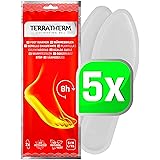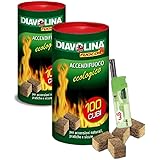Berlin’s Star FM has uploaded a two-part podcast containing an interview with IRON MAIDEN singer Bruce Dickinson, conducted earlier this year by Jakob Kranz of the “Heavy Hour” show. You can now listen to the chat below.
Expressing his concern about an alleged epidemic involving the overuse of psychiatric medications for children, Bruce said: “My oldest son, Austin, was diagnosed with… A doctor came along when he was five years old and said, ‘Oh, yes, we should give him some Ritalin,'” referring to the drug used in the treatment of attention deficit hyperactivity disorder (ADHD). “And I was just, like, ‘I won’t give drugs to my son. What is this? He’s five years old. He looks pretty normal to me. He runs around a lot; that’s what five-year-olds do.’ Anyway, fast forward a few years to when he was 11 or 12, and a lot of his friends in a school for dyslexics, and they were really great kids. And he said, ‘Any chance I could get into that school?’ I said, ‘Austin, you’re not dyslexic.’ He went, ‘Oh. I’m not very good at sports.’ He said, ‘Could I still say I’m dyspraxic? Then I could get in.’ So we sent him to this guy who was gonna assess him. Anyway, the guy said, ‘Who said this kid has ADHD?’ He said, ‘He doesn’t have ADHD. He was bored.’ He said, ‘He’s 11 years old. He has a verbal reasoning age of 21.’ I went, ‘Ooh. That’s way, way, way, way high.’ He said, ‘Everything else is okay, normal, but verbal reasoning is, wow!’ I said, ‘How is that possible? I’ve never seen him read a book.’ And he said, ‘Well, he does.’ And so for his A Levels at school, I made him — he hated me for it — I made him do English literature, because I just wanted to give him structure. The English literature would force him to give structure to his ability. And his writing is extraordinary. And musically he’s extraordinary as well; he’s doing great from that angle.”
Dickinson added that he is “not a believer” in prescribing psychiatric medications to children with mental health conditions. “Yes, in extreme cases, maybe, but even then, I’m not sure,” he said. “What the hell did we do before drugs with kids? We would send them out to play in the woods, and they would learn to climb trees or they fell out of trees, and they went, ‘I’ll climb it a different way.’ And they learned.
“Churchill would unquestionably have been medicated,” Bruce said, referring to one of the greatest leaders of the 20th century, who is believed to have suffered from bipolar disorder. “And many of the great leaders of the world would have been medicated. People’s brains develop at different stages in their lives, and there’s no cookie-cutter approach to the human brain. It’s terrible what they’re doing to kids. And it’s all because of the drive to categorize and put people in little boxes to make it easy for people.”
Dickinson went on to say that there is no one-size-fits-all approach to fatherhood. “You do the best with the roadmap that you’ve got,” he said. “I think my map of how to be a father was incomplete; it had a few areas on the map that said, ‘Uncharted. Have not been here yet.’ And you have to deal with that.
“Every family comes with the baggage of the previous family; it inherits it,” he continued. “And so you just have to run with that. A certain amount of it is instinct; some of it is learned behavior; some of it is behavior that you might have to unlearn. ‘Cause you go, ‘This doesn’t work.’ And it’s, like, ‘Well, did it work when your dad did it to you?’ ‘No.’ ‘Well, why do you think it’s gonna work now?’ ‘Oh. Good point.’
“I suppose you could go to school to learn to be a dad, but I don’t think it would work,” he added. “I think you just have to get on with life and do it with compassion. The important thing, I think, is that your children feel unconditional love for their parents. No matter what they do, they will never not be loved. That’s it. And that’s a really big thing, I think, if you feel that. Because it will stop you doing things to damage yourself and other people. You go, ‘There’s no point in doing this to get love from my parents, to get attention, ’cause it’s always there. Hmm, okay. Damn! Maybe I just won’t do something really stupid; I’ll just do something a little bit stupid.’
“All my kids, I’m really proud of ’em all,” Bruce concluded. “They’re really decent human beings. That’s the best thing I can ever hope to have achieved.”
Dickinson‘s autobiography, “What Does This Button Do?”, landed at No. 10 on the New York Times “Hardcover Nonfiction” best sellers list. It was released in the U.S. last October via Dey Street Books (formerly It Books), an imprint of HarperCollins Publishers.
Interview (part 1):
Interview (part 2):
Fonte: Blabbermouth.net











